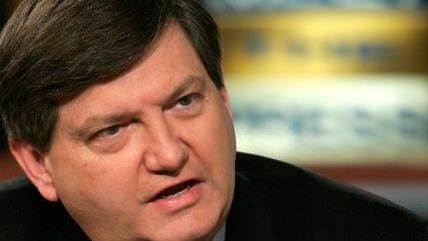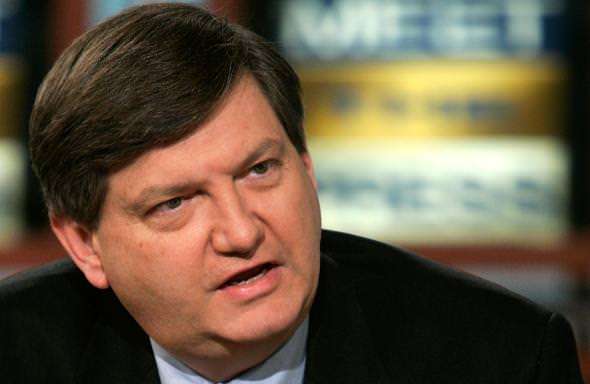Supreme Court Won't Intervene in Obama Administration's War on Journalists, Leakers


Amid the flurry of activity announced from the Supreme Court today, one simple order put an end to New York Times reporter James Risen's legal efforts to refuse to identify a confidential source used in his book, State of War. The Supreme Court declined to hear his case.
The source is alleged to be Jeffrey Sterling, a former CIA official the Department of Justice is trying to convict under the Espionage Act for supposedly detailing to Risen a secret plan to sabotage Iran's nuclear research. Risen included the information in his book, published in 2006.
Risen has said he would go to jail rather than give up his source. The Supreme Court's unwillingness to take up the case leaves intact an order from the Appeals Court for the 4th Circuit to comply with the subpoena. But though Risen could face jail for contempt, The New York Times notes that the Department of Justice may not be willing to push that far:
Attorney General Eric H. Holder Jr. hinted last week that the Justice Department might choose not to ask the trial judge to jail Mr. Risen for contempt should he refuse to testify.
The Obama administration has pursued leaks aggressively, bringing criminal charges in eight cases, compared with three under all previous administrations combined.
At the same time, the administration has supported efforts in Congress to create a federal shield law that would allow judges to quash some subpoenas to journalists. The Justice Department has also issued new internal regulations limiting the circumstances in which prosecutors can subpoena reporters' testimony and records.
While the proposed federal shield law and new internal regulations sound like positive developments, I've previously noted that both the proposed law and the regulations have holes you could drive a newspaper delivery truck through. Given the nature of the information provided to Risen, it seems unlikely the proposed federal shield law (pdf) would have protected him even if it were in place. It has a significant "national security" exemption that encourages deference to federal claims.
Editor's Note: As of February 29, 2024, commenting privileges on reason.com posts are limited to Reason Plus subscribers. Past commenters are grandfathered in for a temporary period. Subscribe here to preserve your ability to comment. Your Reason Plus subscription also gives you an ad-free version of reason.com, along with full access to the digital edition and archives of Reason magazine. We request that comments be civil and on-topic. We do not moderate or assume any responsibility for comments, which are owned by the readers who post them. Comments do not represent the views of reason.com or Reason Foundation. We reserve the right to delete any comment and ban commenters for any reason at any time. Comments may only be edited within 5 minutes of posting. Report abuses.
Please to post comments


Attorney General Eric H. Holder Jr. hinted last week that the Justice Department might choose not to ask the trial judge to jail Mr. Risen for contempt should he refuse to testify.
They're going to check first with the NSA to see what campaigns Risen donated to.
You joke, but...
While the proposed federal shield law and new internal regulations sound like positive developments,
No, they don't. They are an abomination, creating a class of crypto-licensed "journalists" who are beholden to the government for their privileges.
This should be double-posted.
My pleasure:
While the proposed federal shield law and new internal regulations sound like positive developments,
No, they don't. They are an abomination, creating a class of crypto-licensed "journalists" who are beholden to the government for their privileges.
Why do you think the administration supports them? It buys off the "proper" reporters while giving them a cudgel anyway.
Most transparent administration evah!
The Constitution, as written on banana leaves.
While the proposed federal shield law and new internal regulations sound like positive developments, I've previously noted that both the proposed law and the regulations have holes you could drive a newspaper delivery truck through.
Far be it from me to suggest these protections are aimed at shielding anyone who declines to divulge information likely to put the government in a bad light, while allowing the vigorous prosecution of whistleblowers.
We already have a shield law. It's called the First Amendment.
The first amendment is not an absolute, nor should it be.
A shield law would allow a reporter to make up a story and claim it is sourced, without having to prove it was.
I, certainly don't consider reporters as worthy of that level of trust.
Allow me to break out my nanotech violin for the water-carriers.